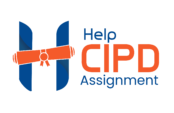7KML Knowledge Management and Organisational Learning
- September 30, 2021
- Posted by: admin
- Category: CIPD Level 7

Organizational learning is arguably one of the critical processes that affect an organization’s success or failure, for example, in gaining a competitive advantage. The efficiency and effectiveness of organizational learning have a significant impact on the organization’s performance outcomes.
As a result, exceptional attention must be paid to investigating and improving organizational learning. It is possible to accomplish this through mechanisms and techniques associated with knowledge management. Learning and knowledge are inextricably linked, with the former being a prerequisite for the latter’s creation. As a result, there is a well-established link between these two concepts.
What is the Purpose of the Module?
The unit investigates the relationship between learning and knowledge and develops a critical understanding of knowledge management concepts. It also investigates organizational learning and the processes involved in designing and implementing knowledge management strategies to support organizational learning.
Furthermore, the unit investigates the implications for professional practices while requiring learners to critically reflect on theory and practice from a professional and ethical standpoint. Thus, it allows for applied learning as well as continuous professional development.
Who is Suitable for this Module?
Those who are qualified for this unit include:
Responsible for HR functional management roles seeking to advance and develop their careers.
- Have aspirations for a career in human resources and CIPD professional membership.
- Assign HR decision-making authority at the operational, strategic, and tactical levels of the organization.
- Have responsibilities for the HR function and other activities within an organization, minus a specialist function.
- Are self-employed or salaried consultants who work with and assist organizations in reaching their goals and objectives.
- Have an interest in HR and aspire to be a CIPD professional.
What are the Module’s Learning Objectives?
After completing this unit, students should be able to:
- Critically assess the meaning of the concepts of knowledge management and organizational learning and related theories.
- Examine and criticize various applications of various concepts in organizational practices.
- Create organizational-based knowledge management strategies and programs to improve, facilitate, and capitalize on organizational learning progress. All of this must take a wide range of contextual factors into account.
- Manage the implementation of knowledge management strategies and processes to support and facilitate organizational learning. This is accomplished with the participation and support of other professionals and managers.
- Act ethically and professionally, demonstrating a commitment to equality of opportunity and diversity. They must also continue their personal and professional development.
What are the Module’s Assessment Criteria?
This module is graded in two different ways. To begin, summative assessment is used to assess at least 50% of the learning outcomes. The remaining 50% of the learning outcome is assessed through teaching, learning, and formative assessment. Among these activities are the following:
- Exams
- Exemplifications
- Assignments
- Projects
- Reports
- Integrated work activities
- Time-limited tests
- Viva Voce
A competency-based assessment may also be used in various approved centres for this method. The assessors for this assessment method, however, must be occupationally competent.
These centres have the option of selecting assessment activities from the CIPD Assessment Bank or developing their own. If the centres develop their assessment activities, CIPD must approve them before they can be used.


